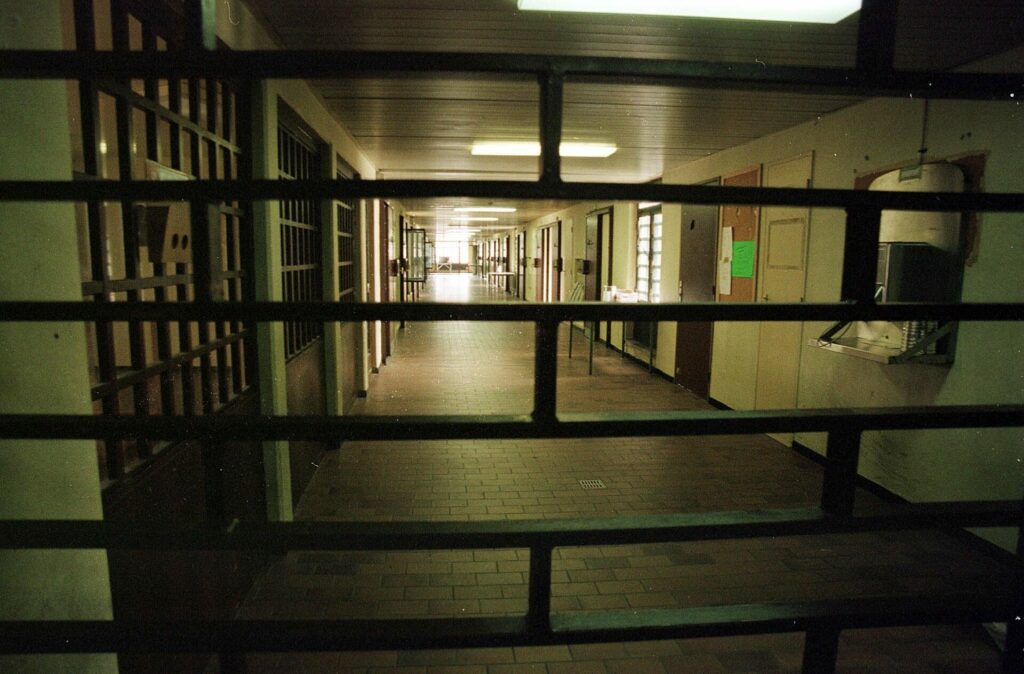More and more prisons are joining an action started on Saturday which is seeing them reject new detainees due to overcrowding. Around one in five jails is now taking part.
Despite new prison openings and measures to combat prison overcrowding, prisons in Belgium are still among the most overcrowded in Europe. The chronic lack of capacity in Belgian prisons has resulted in inhumane conditions, including inmates sleeping on cell floors. It is also damaging prisoners' overall rehabilitation, triggering a vicious cycle in the penitentiary system.
At the end of January, prisoner numbers for the first time surpassed 12,000 in a system that only has a capacity of 10,700. In response to this overcrowding, which is not only a burden for detainees but also for staff in jails, Hasselt Prison on Saturday announced it stopped accepting new prisoners. It currently houses 643 detainees despite only having 420 spaces available.
Soon, other prisons followed suit. On Sunday, the prisons in Antwerp, Mechelen and Turnhout were also no longer accepting new inmates, and the auxiliary prisons of Leuven and Bruges were added to the list later on Sunday. By Monday, the list of prisons participating in the action totalled eight, as those in Oudenaarde and Ghent also not taking in new detainees.
The union argued that security in correctional facilities can no longer be guaranteed because of the state of overcrowding. It is hoped the action will spur the government to act fast, as the more prisons join the action, the more acute the problem for other penal institutions.
Solutions on the horizon?
In January, a 24-hour strike in Belgian prisons was called over the issue of overcrowding. This was followed by a week of action in Flanders in February. Three unions had also already submitted a strike notice for a 24-hour strike in Belgian prisons from 14 March at 10:00 to address the issue.
The Christian trade union ACV argued that the decision not to accept any more detainees is in principle valid indefinitely, but the consultation with Justice Minister Paul Van Tigchelt (Open VLD) at 11:00 on Monday, scheduled in response to the action and strike notice, could change matters.
The ACV said that it already had a "crisis meeting" with the minister's cabinet on Sunday evening. Van Tigchelt told VRT NWS that he was looking for solutions to prison overcrowding "in the coming hours and days". ACV stressed that
Meanwhile, Flemish Justice Minister Zuhal Demir (N-VA) has chimed in. "Over the past few years, at the federal level, people have merely passed on problems to alternative sentences and looked away from structural solutions. The result is the mess we now face. This cannot continue."
Related News
- Prison population almost 15% higher than capacity
- Resolve crisis in 10 days or prison will close, mayor of Huy tells Federal Government
She rejected the solution put forward by unions – namely to impose an ankle bracelet as an alternative sentence more frequently – arguing that an ankle bracelet can sometimes work, but it is "unwise to simply make them applicable to every criminal."
"I maintain that there must be an appropriate punishment for every crime, and shifting problems to ankle bracelets cannot be the solution to capacity problems in prisons."
She therefore stressed that structural solutions from the Federal Government are needed, pointing at the fact that 40% of inmates are defendants still awaiting a final ruling. "This means court decisions are taking too long." She also called for the defederalisation of justice. "Time for the power to come fully to Flanders instead of muddling through with a weak policy towards alternative sentencing."

